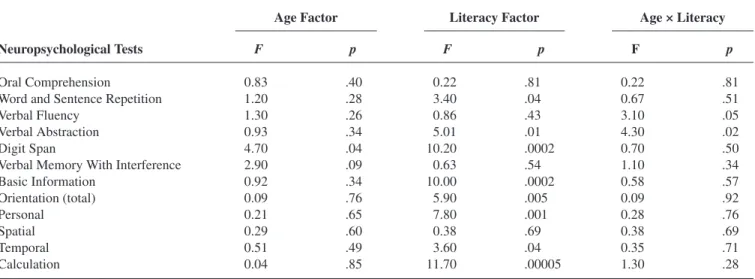A sociodemographic and neuropsychological characterization of an illiterate population
Texto
Imagem




Documentos relacionados
The probability of attending school four our group of interest in this region increased by 6.5 percentage points after the expansion of the Bolsa Família program in 2007 and
O principal negociador de 1954, Pham Van Dong fora forçado pelos soviéticos e chineses a assinar um acordo, que, mais tarde, Mao admitiu que fora um erro (YANG, 2002). Le
The groups were composed of 15 dementia patients and 57 healthy participants (illiterate group), 77 dementia patients and 338 healthy participants (lower educational level group),
Sendo assim, o presente trabalho teve como objetivo investigar as concepções apresentadas pelas professoras de Ciências e estudantes do 7º ano do Ensino
Uma teoria que subjaz às concepções representacionais do artefato simbólico cha- mado Alegoria da Caverna é a teoria da imortalidade da alma , como aparece no Fédon , obra
Explanatory variables were: sex (female and male); age group (35 to 39 years and 40 to 44 years); schooling (0 to 4 years, 5 to 8 years, 9 years or more); last visit to an
According to the schooling level, four groups were constituted as follows: group illiterate (n=28) - individ- uals without any formal schooling instruction; group 1- 4 degree (n=119)
Wendy Brown (2011) argues that the paradox around the term democracy is that it has never been more popular and, at the same time, as lacking in substance. Today, the state


